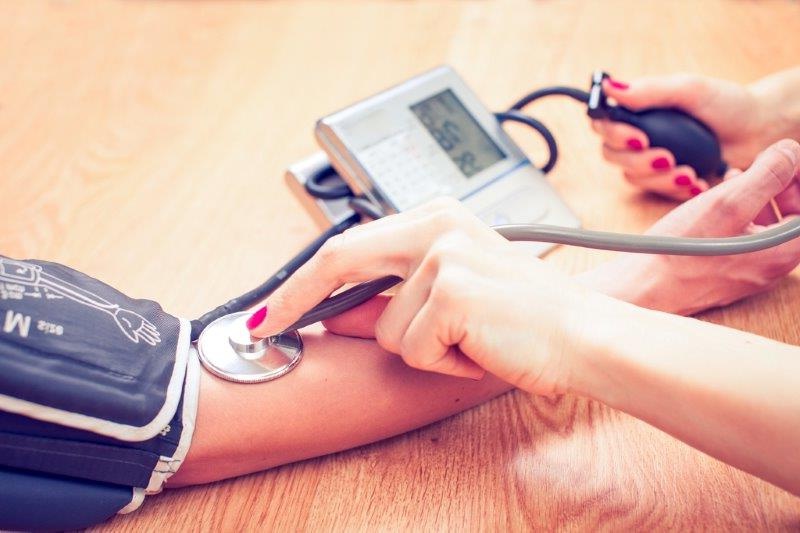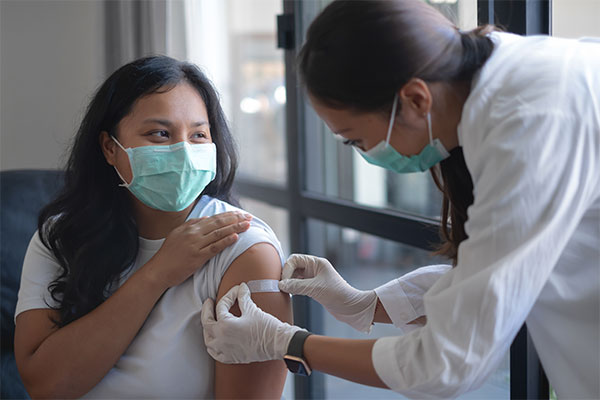-
Did you know that bowel cancer is estimated to become the fourth most common cancer in Australia in 2022? Bowel cancer, which can also be referred to as colorectal cancer, develops from the inner lining of the bowel and is often preceded by growths called polyps, which may become cancerous if undetected. People aged 50+ are most at risk, however it increasingly affects all age groups.
What are the symptoms of bowel cancer?
Make an appointment to see your GP if you experience any of the following symptoms:
- Changes in your bowel habits with diarrhoea, constipation or the feeling of incomplete emptying
- Thin bowel movements
- Blood in the stools
- Abdominal pain, bloating or cramping
- Anal or rectal pain
- A lump in the anus or rectum
- Weight loss
- Fatigue
- Unexplained anaemia.
Who is most at risk of getting bowel cancer?
The following factors increase the risk of developing bowel cancer:
- Inheriting one of two uncommon genetic disorders – familial adenomatous polyposis (FAP) or Lynch syndrome
- A personal or strong family history of bowel cancer
- Inflammatory bowel disease
- Polyps.
Diet and lifestyle factors may also increase your risk of bowel cancer. These include eating a lot of red and processed meats, drinking too much alcohol, smoking, and being overweight or obese.
Bowel cancer screening
90% of bowel cancer is treatable if found early, and screening is one of the most effective ways to prevent bowel cancer from developing. Screening involves a simple, non-invasive test that can be taken in the comfort of your own home.
If you are aged 50 or over, have a chat with your GP about the screening test. The Australian Government currently offers free faecal occult blood test (FOBT) kits to people turning 50, 52, 54, 56, 58, 60, 62, 64, 66, 68, 70, 72 and 74, and it is recommended that the test is taken every 2 years. To be eligible for a free test, you need to have a Medicare card or a Veteran Affairs card.
It’s important to note that this test is for low-risk people only, who display no symptoms of bowel cancer. If you have a strong family history of bowel cancer or a genetic condition that can cause bowel cancer, ask your GP whether you need to have more regular tests and start screening at an earlier age.
You may be eligible to participate in our No Gap Day Procedure Program at participating hospitals and not incur out pocket costs for colonoscopy. Find out more and check your eligibility* here.
Diagnosing bowel cancer
A handful of physical tests can be used to diagnose bowel cancer. These may include:
- A rectal examination
- A colonoscopy and sigmoidoscopy.
- A barium enema
- An ultrasound, CT scan or MRI scan.
Treatment for bowel cancer
Staging, which involves determining if and how far the cancer has spread, helps a doctor to work out the best treatment for their patient. If you are diagnosed with bowel cancer, it’s important to ask your doctor to explain the stage of your cancer to help determine the best treatment for you.
Treatment for bowel cancer may include:
- Surgery to remove the cancer within the bowel and surrounding lymph nodes is the most common treatment for bowel cancer.
- Chemotherapy or radiotherapy. These treatments are commonly used in addition to surgery, especially if the cancer is more widespread.
In some cases, your doctor may talk to you about palliative care. As well as slowing the spread of cancer, palliative treatment can relieve pain and help manage the symptoms of cancer.
Do you have more questions?
If you have been diagnosed with bowel cancer and have questions or concerns about your diagnosis or treatment plan, your doctor and healthcare team can provide further guidance and support that is unique to you.
Medibank members with hospital cover can also call our 24/7 Medibank Nurse with any health question, 24 hours a day, seven days a week.
*A referral from your GP is required to see a specialist to judge your eligibility. This can be an open referral (the patient chooses the hospital/facility/specialist) or direct to a specific specialist. The participating hospital and participating medical specialist will work with you to decide if the pilot is right for you and your health needs. However, if your health practitioner / professional refers you to a non-participating hospital and/or the pilot is not otherwise right for your health needs, any such procedure will not be part of the no gap day procedure program and you may incur out-of-pocket costs.
Bowel cancer: risks, symptoms, diagnosis and treatment


24/7 Medibank Nurse phone service
Medibank members with hospital cover can chat to an experienced Medibank nurse over the phone, any time of the day or night.*
*OSHC members should call the Student Health and Support Line on 1800 887 283.
-
Am I just worried, or is it anxiety?
Understand what’s healthy when it comes to feeling anxious.
-
Where to get health support in Australia
An Overseas Student Health Cover member’s guide to key health services and when to use them.
-
How can Australian pharmacies help you?
What can you buy at a pharmacy? Do you need a prescription? Can pharmacists identify health conditions? Everything international students need to know about pharmacies in Australia.
-
How to prevent type 2 diabetes with diet
Diet plays an important role in the prevention and management of type 2 diabetes. Here’s what you should and shouldn’t eat.
-
High blood pressure: how health cover can help
Put your health cover to use
-
Why you should get the 2023 flu vaccine
More than three years on from the start of the COVID-19 pandemic, getting a flu jab this winter is even more important. Here’s why.
Subscribe to receive the best from Live Better every week. Healthy recipes, exercise tips and activities, offers and promotions – everything to help you eat, move and feel better.
By clicking sign up I understand and agree to Medibank's privacy policy






